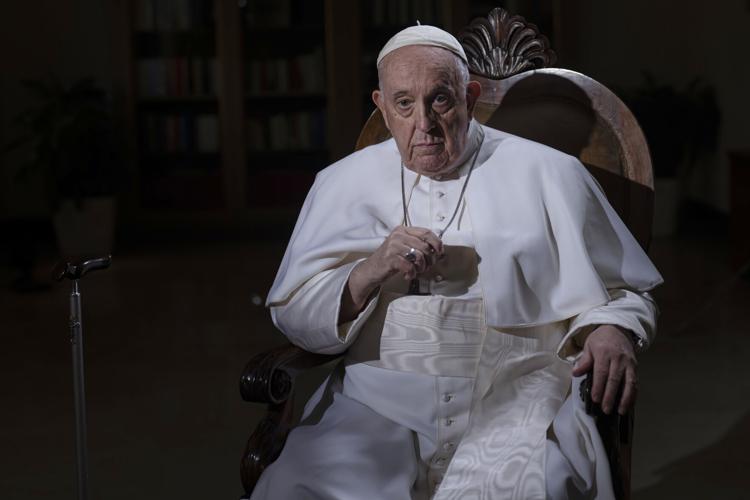/ Apr 28, 2025
Trending

Pope Francis, who served as the 266th pontiff of the Roman Catholic Church from 2013 until his death in April 2025, left an indelible mark through a series of groundbreaking reforms and initiatives. His papacy was characterized by a commitment to humility, inclusivity, and social justice, resonating with people across the globe. Below is an overview of his most significant achievements:
In 2015, Pope Francis released the encyclical Laudato Si’, emphasizing the moral imperative of addressing environmental degradation and climate change. This document called for a collective responsibility to care for “our common home,” influencing global discussions on environmental policies and ethics.
Pope Francis initiated a significant overhaul of the Roman Curia with the apostolic constitution Praedicate Evangelium, promulgated in 2022. This reform aimed to decentralize Church governance, enhance transparency, and align the Curia’s mission with evangelization efforts.
Addressing long-standing financial issues within the Vatican, Pope Francis established the Secretariat for the Economy in 2014 to oversee financial activities. He implemented measures to increase transparency, including independent audits and the publication of financial reports, aiming to restore trust in the Church’s financial dealings.
In 2021, through the apostolic letter Spiritus Domini, Pope Francis amended canon law to allow women to be formally instituted as lectors and acolytes. This move recognized the valuable contributions of women to Church life and promoted greater inclusivity.
Pope Francis prioritized interreligious dialogue, culminating in the signing of the Document on Human Fraternity with Grand Imam Ahmed el-Tayeb in 2019. This historic agreement advocated for peace, coexistence, and mutual understanding among different faiths.
Recognizing the pastoral challenges faced by Catholics seeking annulments, Pope Francis reformed the matrimonial nullity trial process in 2015. The reforms streamlined procedures, reduced costs, and empowered local bishops to handle cases more efficiently, making the process more accessible to the faithful.
Demonstrating deep compassion for displaced individuals, Pope Francis consistently advocated for the rights and dignity of migrants and refugees. He visited migration hotspots like Lampedusa and Lesbos, bringing global attention to their plight and urging nations to adopt humane immigration policies.
Throughout his papacy, Pope Francis addressed issues of inequality, poverty, and social injustice. He called for economic systems that prioritize human dignity over profit and emphasized the Church’s role in advocating for the marginalized.
Pope Francis undertook extensive international travel, visiting numerous countries to engage with diverse communities and promote peace. His global outreach underscored the universal mission of the Church and its commitment to solidarity with all peoples.
During his tenure, Pope Francis canonized over 900 individuals, including figures from various cultural and social backgrounds. This emphasis on global diversity highlighted the universal call to holiness and the Church’s recognition of sanctity across different contexts.
Pope Francis’s papacy was marked by a series of transformative initiatives that sought to align the Church more closely with the values of compassion, inclusivity, and justice. His legacy continues to inspire efforts toward a more empathetic and responsive Church in the modern world.
Pope Francis, who served as the 266th pontiff of the Roman Catholic Church from 2013 until his death in April 2025, left an indelible mark through a series of groundbreaking reforms and initiatives. His papacy was characterized by a commitment to humility, inclusivity, and social justice, resonating with people across the globe. Below is an overview of his most significant achievements:
In 2015, Pope Francis released the encyclical Laudato Si’, emphasizing the moral imperative of addressing environmental degradation and climate change. This document called for a collective responsibility to care for “our common home,” influencing global discussions on environmental policies and ethics.
Pope Francis initiated a significant overhaul of the Roman Curia with the apostolic constitution Praedicate Evangelium, promulgated in 2022. This reform aimed to decentralize Church governance, enhance transparency, and align the Curia’s mission with evangelization efforts.
Addressing long-standing financial issues within the Vatican, Pope Francis established the Secretariat for the Economy in 2014 to oversee financial activities. He implemented measures to increase transparency, including independent audits and the publication of financial reports, aiming to restore trust in the Church’s financial dealings.
In 2021, through the apostolic letter Spiritus Domini, Pope Francis amended canon law to allow women to be formally instituted as lectors and acolytes. This move recognized the valuable contributions of women to Church life and promoted greater inclusivity.
Pope Francis prioritized interreligious dialogue, culminating in the signing of the Document on Human Fraternity with Grand Imam Ahmed el-Tayeb in 2019. This historic agreement advocated for peace, coexistence, and mutual understanding among different faiths.
Recognizing the pastoral challenges faced by Catholics seeking annulments, Pope Francis reformed the matrimonial nullity trial process in 2015. The reforms streamlined procedures, reduced costs, and empowered local bishops to handle cases more efficiently, making the process more accessible to the faithful.
Demonstrating deep compassion for displaced individuals, Pope Francis consistently advocated for the rights and dignity of migrants and refugees. He visited migration hotspots like Lampedusa and Lesbos, bringing global attention to their plight and urging nations to adopt humane immigration policies.
Throughout his papacy, Pope Francis addressed issues of inequality, poverty, and social injustice. He called for economic systems that prioritize human dignity over profit and emphasized the Church’s role in advocating for the marginalized.
Pope Francis undertook extensive international travel, visiting numerous countries to engage with diverse communities and promote peace. His global outreach underscored the universal mission of the Church and its commitment to solidarity with all peoples.
During his tenure, Pope Francis canonized over 900 individuals, including figures from various cultural and social backgrounds. This emphasis on global diversity highlighted the universal call to holiness and the Church’s recognition of sanctity across different contexts.
Pope Francis’s papacy was marked by a series of transformative initiatives that sought to align the Church more closely with the values of compassion, inclusivity, and justice. His legacy continues to inspire efforts toward a more empathetic and responsive Church in the modern world.
It is a long established fact that a reader will be distracted by the readable content of a page when looking at its layout. The point of using Lorem Ipsum is that it has a more-or-less normal distribution of letters, as opposed to using ‘Content here, content here’, making it look like readable English. Many desktop publishing packages and web page editors now use Lorem Ipsum as their default model text, and a search for ‘lorem ipsum’ will uncover many web sites still in their infancy.
It is a long established fact that a reader will be distracted by the readable content of a page when looking at its layout. The point of using Lorem Ipsum is that it has a more-or-less normal distribution of letters, as opposed to using ‘Content here, content here’, making it look like readable English. Many desktop publishing packages and web page editors now use Lorem Ipsum as their default model text, and a search for ‘lorem ipsum’ will uncover many web sites still in their infancy.
The point of using Lorem Ipsum is that it has a more-or-less normal distribution of letters, as opposed to using ‘Content here, content here’, making

The point of using Lorem Ipsum is that it has a more-or-less normal distribution of letters, as opposed to using ‘Content here, content here’, making it look like readable English. Many desktop publishing packages and web page editors now use Lorem Ipsum as their default model text, and a search for ‘lorem ipsum’ will uncover many web sites still in their infancy.
It is a long established fact that a reader will be distracted by the readable content of a page when looking at its layout. The point of using Lorem Ipsum is that it has a more-or-less normal distribution
Copyright BlazeThemes. 2023